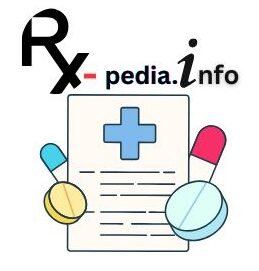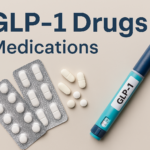
Infertility rates are rising, with nearly 10-15% of couples facing challenges in conceiving. Surprisingly, medications play a significant role in this statistic. Many women may not be aware that certain drugs can negatively impact their fertility. This article explores the connection between various drugs that can cause Infertility in Women , providing valuable insights and information you need to know.
Table of Contents
Chemotherapy Drugs and Their Impact on Fertility
Types of Chemotherapy Drugs
Chemotherapy can save lives but may also harm fertility. Different types of chemotherapy drugs work in various ways, and their effects on ovarian reserve can vary.
- Alkylating Agents: These drugs, such as cyclophosphamide, can damage DNA in ovarian cells, leading to reduced egg quality and quantity. Studies show that up to 40% of women using these agents may experience infertility.
- Anthracyclines: Medications like doxorubicin can also negatively impact fertility by affecting hormone levels. Women undergoing treatment may see a 30-50% chance of infertility.
Management and Mitigation Strategies
Before starting chemotherapy, discussing fertility preservation options with a reproductive endocrinologist is critical. Some effective strategies include:
- Egg Freezing: Women can freeze their eggs before treatment to maintain their chance of parenthood later.
- Ovarian Tissue Cryopreservation: This method allows the preservation of ovarian tissue for future use.
Real-World Example
Consider the case of a young cancer survivor who, after undergoing aggressive chemotherapy, faced fertility difficulties despite her desire to have children. This case is echoed in many medical journals, highlighting the importance of early discussions about fertility preservation with healthcare providers.
Immunosuppressants and Their Effects on Reproduction
Mechanism of Action
Immunosuppressants help control autoimmune diseases, but they can disrupt the hormonal balance necessary for regular ovulation. This disruption can lead to infertility.
Specific Drugs
Common immunosuppressants, such as methotrexate and azathioprine, have been linked to fertility issues:
- Methotrexate: This drug can cause irregular menstrual cycles, impacting ovulation.
- Azathioprine: Studies show a prevalence of infertility in women taking this medication, emphasizing the need for monitoring and alternative treatment options.
Long-Term Implications
Infertility can persist even after discontinuing immunosuppressants. Women must discuss long-term fertility impacts with their healthcare providers to fully understand their options.
Psychotropic Medications and Fertility
Antipsychotics and Mood Stabilizers
These medications can interfere with the hypothalamic-pituitary-ovarian axis, essential for regulating ovulation.
- Studies indicate that women using antipsychotics may face a 25% increased risk of infertility compared to those not taking these medications.
Antidepressants
Selective serotonin reuptake inhibitors (SSRIs) and other antidepressants can also affect fertility. Research shows:
- SSRIs: Women on SSRIs may experience delayed ovulation, leading to challenges in conceiving.
Case Studies
Documented cases highlight the struggles some women encounter while taking psychotropic medications. In one case, a woman faced significant fertility issues after prolonged SSRI use, illustrating the link between mental health medications and infertility.
Over-the-Counter Medications and Unintended Consequences
Analgesics
Long-term use of certain pain relievers, especially NSAIDs like ibuprofen, may negatively impact ovarian function. Chronic usage can lead to irregular cycles.
Hormonal Contraceptives
Different types of hormonal contraceptives, including pills, patches, and implants, may affect future fertility. While many women resume regular cycles after stopping, statistics indicate that about 10-15% may experience difficulties conceiving afterward.
Other OTC Drugs
Some over-the-counter medications, while not well-documented, may also have potential effects on fertility. Always consider discussing these with your doctor.
Protecting Fertility While Managing Medical Conditions
Communication with Healthcare Providers
It’s essential to openly discuss fertility concerns with healthcare providers. Transparent conversations about medication effects can lead to more tailored treatment plans.
Fertility Preservation Techniques
Revisiting fertility preservation methods can empower women facing medical challenges. Options must be suitable based on individual needs and conditions.
Lifestyle Factors
Maintaining a healthy lifestyle contributes to supporting fertility, even while on medication. Regular exercise, a balanced diet, and stress management can make a difference.
How Drugs Affect Fertility
Drugs can impact fertility in various ways:
- Disrupting Hormonal Balance: Many drugs interfere with the delicate balance of hormones necessary for ovulation and conception.
- Damaging Reproductive Organs: Some medications can directly damage the ovaries, uterus, or fallopian tubes.
- Affecting Egg Quality and Quantity: Certain drugs can reduce the number and quality of eggs produced by the ovaries.
- Interfering with Ovulation: Some medications can prevent the release of an egg from the ovary, making conception difficult.
Minimizing Drug-Induced Infertility Risks
To protect your fertility while taking medication:
Lifestyle Factors: Maintain a healthy lifestyle, including a balanced diet, regular exercise, and stress management, to optimize reproductive health.
Consult with a Healthcare Provider: Discuss your reproductive goals and any concerns about medication side effects with your doctor.
Weigh the Risks and Benefits: Consider the potential impact of medication on your fertility and discuss alternative treatment options if necessary.
Consider Alternative Treatments: Explore natural remedies or lifestyle changes to address your health concerns without compromising fertility.
Conclusion: Navigating the Complexities of Medication and Fertility
Understanding the impact of various medications on fertility is crucial. Chemotherapy, immunosuppressants, psychotropic drugs, and even everyday medications can challenge a woman’s ability to conceive. Open communication with healthcare professionals and exploring fertility preservation techniques can help women navigate this complicated landscape. With knowledge and proactive steps, managing fertility concerns becomes a more manageable task.
FAQs:
Can infertility caused by drugs be reversed?
While fertility may improve after discontinuing certain medications, the extent of recovery varies. In some cases, the damage may be irreversible.
What are the best fertility treatments for drug-induced infertility?
The best treatment option will depend on the specific cause of infertility. A fertility specialist can recommend the most appropriate treatment, such as IVF, IUI, or medication.
How can I protect my fertility while taking medication?
To protect your fertility, consult with your doctor about the potential side effects of your medication, consider alternative treatment options, and maintain a healthy lifestyle.
What lifestyle changes can improve fertility?
Maintaining a healthy weight, eating a balanced diet, exercising regularly, managing stress, and avoiding excessive alcohol consumption can improve fertility.











When I originally commented I clicked the “Notify me when new comments are added” checkbox and now each time a comment is added I get several emails with the same comment. Is there any way you can remove me from that service? Thank you!